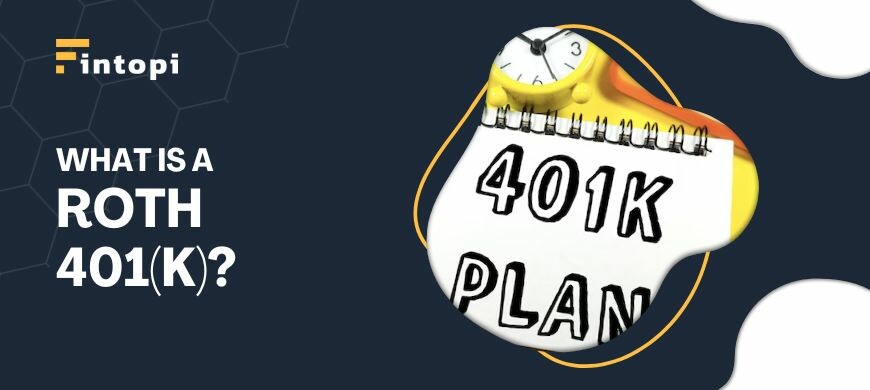What Is a Roth 401(k)? Here’s What You Need To Know
Retirement planning is an essential part of your financial journey, and one of the most important decisions you will make is choosing the right retirement account. One of the popular options available to employees is the Roth 401(k) plan. This plan is an excellent way to save for retirement while enjoying tax benefits.
In this guide, we will walk you through everything you need to know about Roth 401(k) contributions and withdrawals.
What is a Roth 401(k)?
A Roth 401(k) plan is a type of retirement savings account that combines the features of a traditional 401(k) and a Roth IRA. Like a traditional 401(k), you can contribute a portion of your salary to your account, and your employer may match your contributions up to a certain percentage.
However, unlike a traditional 401(k), contributions to a Roth 401(k) are made with after-tax dollars. This means that you won’t get a tax break when you contribute, but your withdrawals will be tax-free in retirement.
Benefits of a Roth 401(k)
There are several benefits of a Roth 401(k) that make it an attractive option for retirement savings. Firstly, unlike a Roth IRA, there are no income limits for contributions. This means that high earners can still contribute to a Roth 401(k) plan.
Secondly, since your contributions are made with after-tax dollars, you won’t owe any taxes on your withdrawals in retirement. Thirdly, a Roth 401(k) plan can offer more flexibility than a traditional 401(k) plan, allowing you to access your funds without penalty in certain situations.
Roth 401(k) Contributions
When it comes to contributing to a Roth 401(k) plan, the rules are similar to a traditional 401(k). The maximum contribution limit for 2023 is $22,500 for individuals under 50 years of age and $30,000 for individuals 50 years of age and older. Your employer may also offer a matching contribution of up to a certain percentage of your salary.
It’s important to note that, while your contributions are made with after-tax dollars, your employer’s contributions are made with pre-tax dollars and will be taxed when you withdraw them in retirement.
Roth 401(k) Withdrawals
When it’s time to start withdrawing from your Roth 401(k) plan, there are a few things to keep in mind. Firstly, since your contributions were made with after-tax dollars, you won’t owe any taxes on your withdrawals in retirement. Secondly, to qualify for tax-free withdrawals, you must have held the account for at least five years and be over 59 ½ years of age.
However, there are some exceptions to this rule, such as a disability or a first-time home purchase. Lastly, unlike a traditional 401(k) plan, you won’t be required to take mandatory distributions at age of 72.
Conclusion
In conclusion, a Roth 401(k) plan can be a smart retirement savings option for those looking to maximize tax-free withdrawals in retirement. With the ability to contribute more than a Roth IRA and no income limits for contributions, it can be a valuable addition to your retirement savings plan.
However, it’s important to understand the rules around contributions and withdrawals to ensure you’re making the most of this savings option. If you’re considering a Roth 401(k) plan, be sure to evaluate your financial situation and retirement goals to determine whether it’s the right choice for you.
With careful planning and management, a Roth 401(k) can help you achieve a comfortable and financially secure retirement.
FAQs
Q: Can I contribute to both a Roth IRA and a Roth 401(k)?
Yes, you can contribute to both a Roth IRA and a Roth 401(k). However, there are income limits.
Q: Can I convert my traditional 401(k) to a Roth 401(k)?
Yes, many employers offer the option to convert your traditional 401(k) to a Roth 401(k).
Q: What happens if I withdraw money from my Roth 401(k) before age 59 ½?
You may be subject to a 10% penalty in addition to income taxes on the amount withdrawn.
Q: Can I roll over my Roth 401(k) to a Roth IRA?
Yes, you can roll over your Roth 401(k) to a Roth IRA when you leave your employer.
Q: Can I withdraw my Roth 401(k) contributions at any time?
Yes, you can withdraw your Roth 401(k) contributions at any time without penalty or taxes.
Q: Are Roth 401(k) plans available to self-employed individuals?
Yes, self-employed individuals can set up a Roth 401(k) plan for themselves and any employees they may have.



